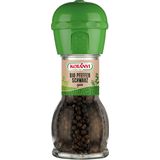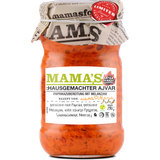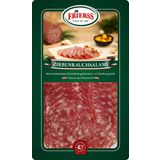Ghee - An Important Indian Cooking Fat
Have you seen? Here at Piccantino you can find several types of Ghees, but do you know what ghee is?
Ghee (pronounced Gi) is a term used in Indian cuisine. Although the name sounds exotic, it is nothing other than concentrated butter. In traditional Indian medicine, Ayurveda, Ghee is credited with many health benefits.
Characteristics
In Europe ghee is revered mainly because of its frying characteristics. Ghee is usually industrially produced from cow's milk. Water and protein are removed from the milk, so that only the fat is left. This has many advantages over butter. Clarified butter can be heated to almost 200 degrees Celsius, without the fatty acids being destroyed. Therefore, it is perfectly suitable for baking, frying and roasting. It is also very durable (it can be stored non-chilled for up to 9 months, or stored cool up to 15 months) and also, people with lactose intolerance can consume it without any problems. It has a melting point of 42 degrees, so it is always crystallized at room temperature.
What is Ghee?
Ghee is usually almost 100% fat. Of these fats, around 60% are saturated, 30% are monounsaturated and just over 5% are polyunsaturated fatty acids. Ghee also contains the fat-soluble vitamins A, D and E. How much fat the ghee contains depends on the manufacturing method.
Manufacturing Methods
In a large country like India, it is not surprising that there are different ways to make ghee. The procedure can influence the taste, quality and durability. For example, some ghees are made of 15% water.
At Piccantino, we only sell authentic ayurvedic ghee. This means that the ghee was made through a boiling process, in the Ayurvedic tradition. Here, butter is gently heated and kept liquid for a good 30 minutes. During this time the water contained in butter evaporates and the protein is deposited on the surface in the form of foam. This foam is skimmed off. What remains is the fat.
The Role of Ghee in Ayurveda
In traditional Indian medicine, Ghee occupies an important position. It is used not only for cooking but is considered to have different positive effects. It is also considered the elixir of life. Some positive effects that ghee allegedly has (according to Ayurveda):
- It stimulates digestion .
- It nourishes the body tissue, because it acts as a carrier for various active ingredients which thus reach up into the cells.
- It helps to keep the body in balance.
- It binds toxins in the body and helps the body remove them.
Latest reviews
-
 5.0 (3)
5.0 (3)Frierss Carinthian Cold Cuts, 120 g
- Made from the best local meat
- Based on traditional recipes
- Perfect for charcuterie boards
€ 4,39 (€ 36,58 / kg)Delivery by February 24
-
 3.0 (2)
3.0 (2)KOTÁNYI Organic Whole Black Pepper - with Grinder, 36 g (45 g)
- Popular all over the world
- Intensely aromatic
- Very spicy
€ 4,49 (€ 99,78 / kg)Delivery by February 21
-
 € 5,99 (€ 20,66 / kg)
€ 5,99 (€ 20,66 / kg)Delivery by February 21
-
 5.0 (1)
5.0 (1)Frierss Sliced Stone Pine Smoked Salami, 100 g
- Matured for 10 weeks
- Finely sliced
- Made with Austrian pork
€ 3,59 (€ 35,90 / kg)Delivery by February 24
Magazine Articles:
-
Austria: Free standard delivery from € 54,90
-
Free
returns -
24-hour shipping
More than 12.800 products
